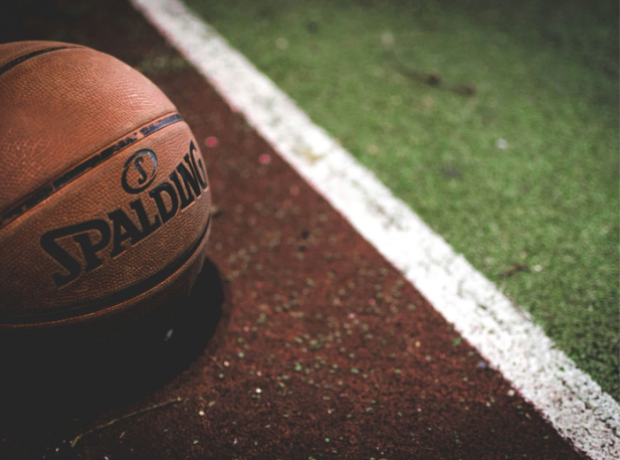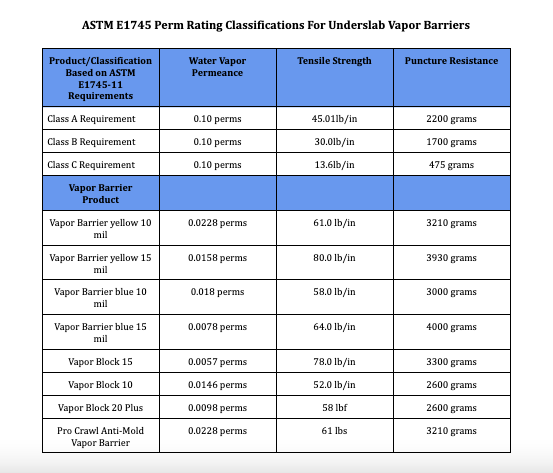
When you think of a vapor barrier, outdoor courts and athletic fields aren’t the foundations you’d think you need one for. It’s more common to use vapor barriers in building foundations, under flooring, and even walls, but you’d be surprised what other applications require a vapor barrier. In general, vapor barriers are an essential ingredient to ensure the long-term stability and health of a building. From moisture control to preventing radon gas intrusion, these barriers play a significant role in protecting the foundation of any construction project.
What Are Under Slab Vapor Barriers?
Under slab vapor barriers serve as a protective layer beneath a traditional concrete foundation. The special type of plastic that’s used to produce vapor barriers helps builders guard against water, pests, and much more. By installing these barriers before pouring concrete, you prevent issues such as mold, mildew, and cracking in the concrete, all of which are typically caused by moisture build-up. Under slab vapor barriers are like a shield between the soil and other materials beneath the concrete slab.
What Projects Warrant An Under Slab Vapor Barrier?
Under slab vapor barriers are an important step to any construction project that values the structural integrity of its concrete foundation. If there is the potential for concrete to rest atop soil, there should definitely be an under slab vapor barrier involved. This applies to both building and athletic court construction.
Related Article: Why Should I Install an Under Slab Vapor Barrier?
Building Construction
In residential settings, under slab vapor barriers prevent exposure to harmful radon gas and keep the foundation dry and secure. And when dealing with larger multi-occupancy buildings, under slab vapor barriers can drastically reduce the rusting of metal beams, cracks in the foundation, and even energy costs. In order to properly install these, builders should place the under slab vapor barrier atop a thin layer of sand that rests above their initial layer of subbase material. The sand acts as a puncture-prevention tool, stopping any direct contact between your vapor barrier and the potentially rough gravel underneath. Once deployed, all seams should be dressed with vapor barrier tape to ensure a proper seal.
Related Article: Under Slab Vapor Barrier: What Happens To Concrete Without One?
Athletic Court And Field Construction
Contrary to what you may have thought, under slab vapor barriers are used everywhere, including in outdoor courts and on athletic fields. In athletic court and field construction, under slab vapor barriers prevent mold and mildew growth, preserving the concrete at the playing surface from degradation. The foundation of most courts and fields is made up of three main parts: the subgrade, the subbase, and the under slab vapor barrier. The vapor barrier’s whole purpose is to go between the subbase and the concrete slab itself. This stops moisture from penetrating up from the ground and impacting the integrity of the concrete.
How To Choose The Right Under Slab Vapor Barrier
Vapor barriers are classified as either class A, B, or C according to their levels of tensile strength and puncture resistance:
According to the IRC guidelines, it’s recommended that a minimum 10 mil vapor barrier be used under concrete slabs in residential buildings. For athletic courts and fields, 10 mil is also the preferred thickness minimum for most installers. Every project is unique, however, and will have its own requirements. Choosing the right under slab vapor barrier at the beginning will help ensure your construction is set up for success for years to come.
Make sure your team stays up to date with the different ASTM E1745-11 requirements for your build, as they will always point you in the right direction. Here’s a closer look:
Get Started On Your Under Slab Vapor Barrier Installation With Americover
As an Americover customer, you will receive the personalized support of a dedicated account manager to simplify the ordering process and ensure the best solution for every one of your projects.
Our friendly, knowledgeable staff is here to answer your questions and fulfill orders Monday-Friday from 7 a.m. to 4:30 p.m. Pacific Standard Time. For more information or a free sample, call us at 760-388-6294 or visit our Contact Us page.

